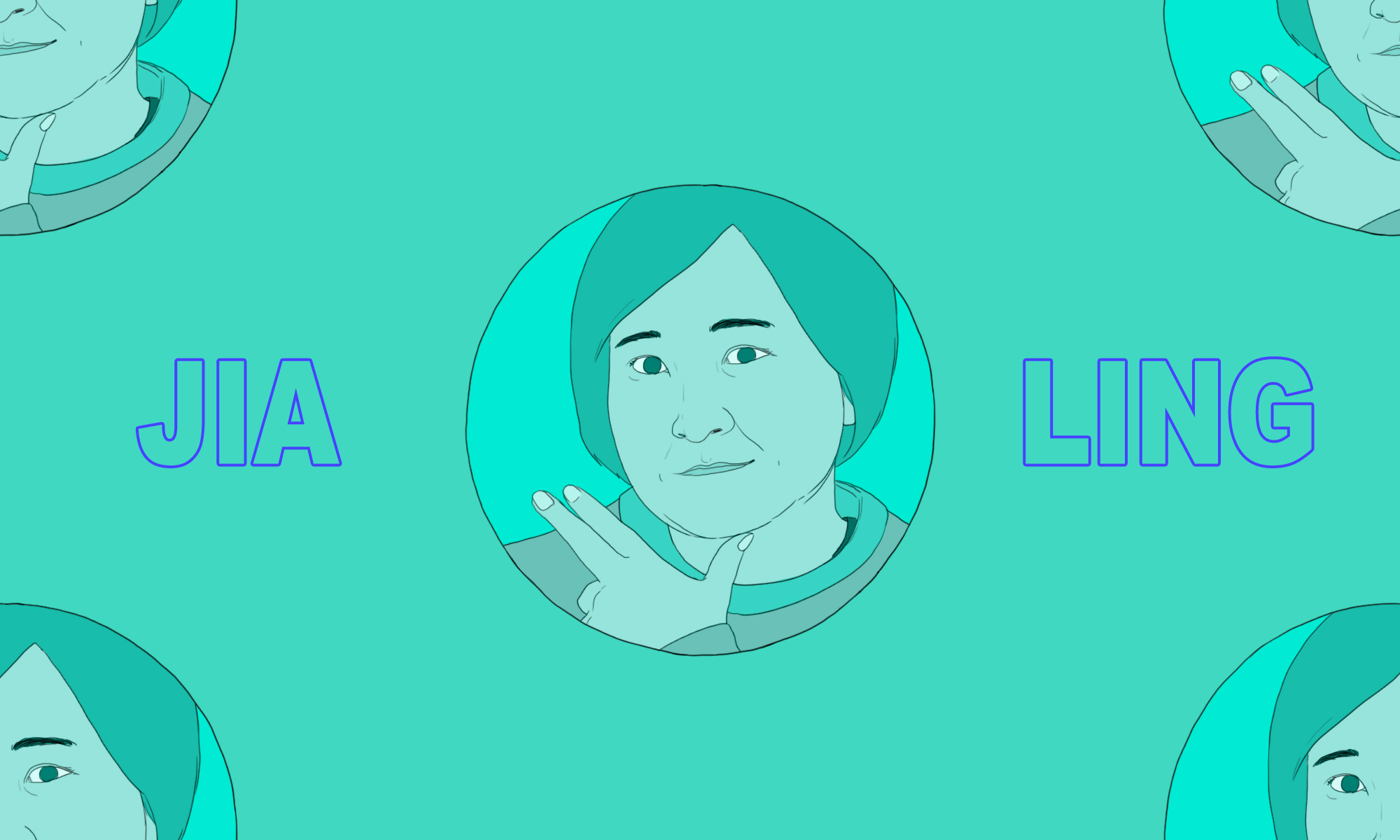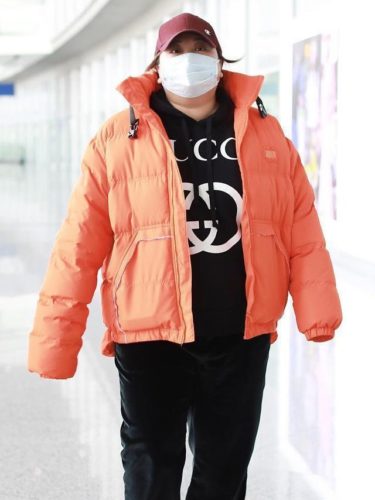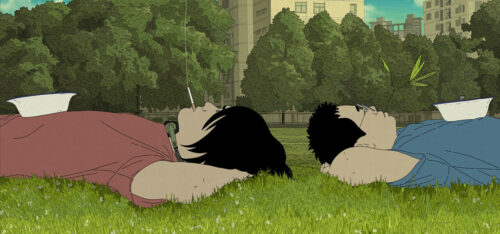These days, the Spring Festival Gala has little to get excited about, festooned with bland dances by cultural heritage troupes, or public information broadcasts thinly veiled as comedy sketches.
But this year, there was one comedian who viewers welcomed — an overweight lady with an irresistible dimpled smile: Jiǎ Líng 贾玲.
In February, Jia’s Hi, Mom — a movie she produced, directed, and starred in that was a tribute to her dead mother — was the highest-earning film of the holiday season. Its total box office of 5.4 billion yuan ($830 million) makes it the highest-grossing female-directed film of all time, surpassing Patty Jenkins’s 2017 Wonder Woman.
In the Gala skit “Three Twists and Turns,” Jia plays an older lady who, through crossed communication with a daughter too shy to announce her engagement, is led to believe she is terminally ill. Watch Jia’s expression at the 11-minute mark as her daughter joyfully talks about her coming wedding, phrased to sound like her mother’s funeral:
That look of dumbstruck horror was the funniest part of the entire gala – while her casting in the sketch was the most tragic.
Who is Jia Ling?
A Hubei girl who made it in comedy against very large odds. She had a very poor upbringing, growing up in a farmhouse in the 1980s. She reminisced on a chat show for Shenzhen TV that she felt “incomparable happiness” when her family got central heating indoors for the first time.
But her studies at the Central Academy of Drama were also a mistake: in a mix-up during a phone call with the academy, her mother had mistakenly put her down for the xiangsheng course, or “crosstalk.”
Crosstalk is a Beijing institution, two men in traditional robes engaged in rounds of quick-fire banter and side-swipes. These duos had only really ever been men. “For a long time, I couldn’t accept being called a crosstalk actor,” Jia told Beijing Evening News in 2009. “A woman speaking xiansheng! It feels like going to the wrong bathhouse.” There had never been a famous female crosstalker before — the banter and mockery were a style of humor that supposedly didn’t fit women. This attitude would show throughout her crosstalk career: In a Weibo blog of 2009, Jia revealed that xiansheng theaters had no women’s changing rooms.
If that wasn’t enough, one month into her studies, her mother died. Jia later said in an interview with CCTV that it left her “tormented.” “For us, a mother’s love is like air, which has been there since you were born, so you often ignore it. But when you lose them, the only thing you can feel is suffocation and helplessness.” Jia would go on to write a sketch in 2016 imagining herself traveling back in time to meet her mother.
In order to make ends meet, Jia filled a plethora of odd dogsbody jobs. She lived in a basement apartment of 10 square meters, withstood taunts about her weight from a director when she was acting as a runner, and walked out on a boyfriend who wanted her to give up on her career and become his housewife.
Meanwhile, Jia’s family wanted to regroup: her elder sister found her a job as a highway toll collector. But reluctant to give up on her dreams, Jia turned to her mentor for help. By this time she had been admitted to the China Broadcasting Art Troupe, working under the great Féng Gǒng 冯巩, a well-known skit performer and talent nurturer.
She slowly edged onto the cross-talk circuit, appearing in contests and small TV dramas, building a reliable name for herself. By 2009, she was running her own comedy troupe, dedicated to updating crosstalk and making it open to innovation. In interviews, she said her aim was to show that “not only can women do cross talk, they can also make it cooler!”
All this led to the Spring Festival Gala of 2010, where she and her long-time crosstalk colleague performed a series of traditional song-and-dance numbers, but reimagined with clownish attempts at kung-fu — whereas most crosstalk was about polish and timing, these dances were hilariously clumsy. Gone were the scholar gowns, replaced by sparkly costumes, while a male comedian was the foil of a female comedian’s put-downs. Here, Jia Ling is very much in control of the situation:
It was the first time audiences across China had been exposed to Jia’s innovations on crosstalk, and they loved it.
Jia began appearing on TV shows across the country. She’s capable of doing a passable impression of Marilyn Monroe, a send-up of diva filmstar Fàn Bīngbīng’s 范冰冰 sex appeal, and a parody of rock singer Zhōu Xiǎo’ōu’s 周晓鸥 wistful stage style (only to have him suddenly appear behind her).
But these comedy takes have landed her in hot water in China’s insecure and sourpuss cultural protection sphere. In 2015 she appeared on Dragon TV in a knock-out sketch reality show, reimagining Mulan as a gluttonous fool, munching on a chicken, tricked by her father into the army. This upset the Mulan Cultural Research Center. “It has destroyed the Chinese nation’s excellence,” the center frothed in an open letter. Despite Jia apologizing on Weibo, one Mulan scholar suggested legislation be written to ban spoofs of important cultural icons. The brouhaha even became an exam practice question for the 2016 National Civil Service Exams.
But her passion seems to have been focused on commemorating her mother. In 2019, Jia posted on social media that she had been taking time off work for three years to write a film script based on her relationship with her mother. Of an underachieving daughter who (due to a tragic accident) travels back in time to make her mother happy.
That audience members knew Jia’s tears of loss in the film aren’t just acting, but stem from genuine tragedy, added a heart-wrenching extra dimension. “Not bringing a few extra tissues and masks is a miscalculation on your part,” reads the most upvoted comment on the Chinese film site Maoyan.
Living with success
Jia recently cracked the Forbes China Celebrity 100 list, nestled among supermodels and pop stars (albeit at 93rd place). Sadly, she would perhaps be higher up if her appearance conformed to typical female Chinese celebrities. In January 2021, photos of her were released that caused some netizens to worry about her health, describing her as “a balloon about to explode.”
“I always thought that artists would be very busy and have no time to eat,” reads one comment on Phoenix New Media, “so they should be thin! Maybe I have misunderstandings about artists.”
Many also rallied to Jia’s defense. “There are a lot of skinny people, especially in the entertainment industry,” wrote one Weibo commentator. “There are not many actresses who have as much substance and rely on their personality to charm as Jia Ling.”
Then again, her looks may have allowed her to punch above her weight. Although some argue her directorial success will “hugely bolster the status of women in the industry,” that remains to be seen for the top echelons of sketch comedy, where she now resides. A study by sociologists Bao Hu and Zhang Pingping of East China Normal University showed that of the 285 sketches that appeared in this year’s CCTV Spring Festival Gala, 53 had characters in positions of leadership; of those, 48 were men, and five were women. Female characters were mostly subordinate relatives or supporting actors. The authors concluded this was designed to teach women “to be modest, virtuous, and quiet,” incompatible with the exaggeration and bravado of comedy. “As a result, the central role of women as comedians in CCTV Spring Festival Gala sketches is relatively small.”
That Jia does not look like the archetypal “perfect woman” perhaps lets her get away with playing the clown on center stage. Although starting from a position of dominance in her 2021 sketch, Jia becomes an anti-role model — an old person neglecting to get a regular health check. Perhaps the question of her weight is meant to lend credibility to the idea she could be at death’s door, as the sketch misleads her to believe. Only with the arrival of a male doctor savior, who spells out the error of her ways, is the problem resolved.
The Gala before that, her sketch had hinged around a mother and daughter-in-law asked by her son to pretend to fight, so as to soothe his boss (also a man) into thinking that women are just naturally argumentative. The year before that, she played a cleaner tasked by a man to get his house all spick-and-span. For all her success, Jia’s ability to stand out from her female peers is both liberating and constraining.
Chinese Lives is a recurring series.







